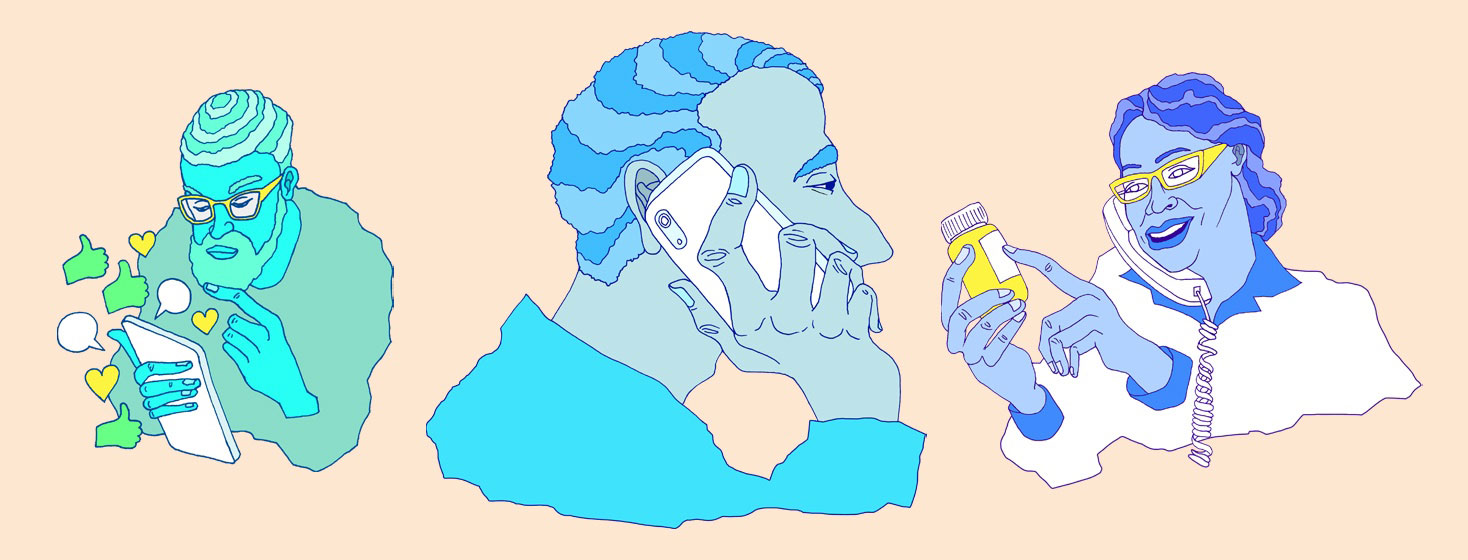A Little Help From Friends
A rare disease, unique and varied symptoms, a scarcity of specialists ... all these things make people with myasthenia gravis (MG) feel isolated and starved for good contacts.
In a world of social media, advice is as easy as a click away. But we all know the value of "free" advice. Sharing misinformation can really hurt. So it’s important to think hard about networking.
We needed information
That was certainly true for us. The first signs of MG were flagged by an optometrist, but neither my husband nor I knew much at all. His first blood tests were negative (as were all the rest) and the symptoms were mild, so our primary care physician dismissed the idea.
By the third pneumonia hospitalization, though, we knew we needed to expand our circle of advisors and contacts. We needed information. But there were thousands of voices out there with all sorts of levels of credibility.
It took months of research and a succession of consultations to put us on the right path. Some of the advice came from doctors, but we also relied a lot of others for leads and support.
Everyone has an opinion
Level 1: Everyone has an opinion
The most accessible but least reliable source of MG information is the general (unmoderated) Internet. Anyone can post. Some comments were straightforward and valuable: "Can you recommend a specialist in Atlanta?" or "Is this a symptom I should investigate?"
Some are so vague or random they are counterproductive. "My toe is swollen. Could that be a symptom?" And if a group has no moderator, some can be dangerous or just sneaky spam: "Has anyone tried ...?" or "This (drug/herb/therapy) will cure anything."
In some cases you can copy and research a line from these posts and find out they are so generic they are spamming every disease forum on the site!
Moderated sites
Level 2: Moderated sites
A site like Myasthenia-Gravis.com has moderators who screen posts and responses. The intent is never to provide specific medical advice, but to have vetted responses that lead contributors to good sources of preliminary information.
The Internet is not a substitute for medical help. But it can help people know when to be concerned and when to act.
There are also many things that can be done in the area of self-care. For example, on this site you can find articles for easier to swallow foods, tips for mobility and safety in travel, and even recommendations for therapy pets.
Perhaps most importantly, an online community can be a real remedy for loneliness when a person is struggling with a condition that affects perhaps 1 in 10,000. What you won’t find is specific medical advice or links to "medical" treatments that have not been verified.
Expert support
Level 3: A Little help from the expert on the corner
If you keep up with posts and responses, you already know that it can take far too long to get to an expert in MG in person. Our wonderful primary care physician (PCP) downplayed the potential diagnosis after the first negative blood test.
Luckily, he is in a well-organized health care network and now the PCP, the neurologist, the swallow specialist, the physical therapist and others are all in the same system and can read one-another’s notes at any point. We can too.
But there are times when we need real information on a moment’s notice. Between visits and consultations, there is a source of great information that is often ignored - your local pharmacist.
When the people only see the pharmacist through a window preparing prescriptions, they miss an opportunity to get quick and reliable information.1
We rely on our pharmacist for questions like:
- Could a prescription I’ve been given cause problems with MG?
- Could the symptom I’m experiencing be a side effect of a drug or something new?
- What can I expect from a vaccine?
Should I call the doctor first? - What about a nutritional supplement?
What to expect when consulting a pharmacist
The pharmacist cannot give specific medical advice regarding a condition, but can raise caution flags. They can contact a doctor to clarify potential misunderstandings and make sure that prescriptions from different providers "go together."
Consulting a pharmacist almost never requires an appointment, and usually is as close as a little "music" while you are on hold. They are important links in your chain of support.
When a drug has potential to make MG worse (flagged for "caution" or a serious "black box" warning) they can intervene and help you know the next step.
Expand that circle
Getting the right advice from the right folks at the right time is so important. From that first lonely and confusing hospitalization to today’s steady and hopeful remission, we have survived by getting the right help from the right friends.
Do you have an MG story? Click the button below to share with our community!

Join the conversation